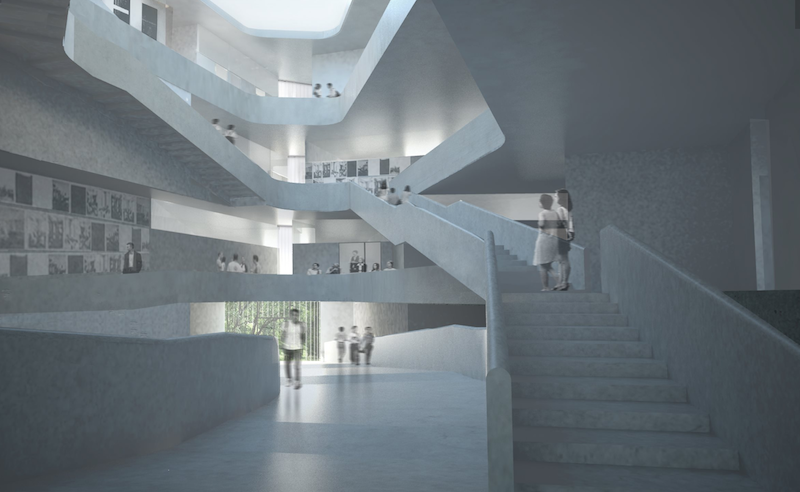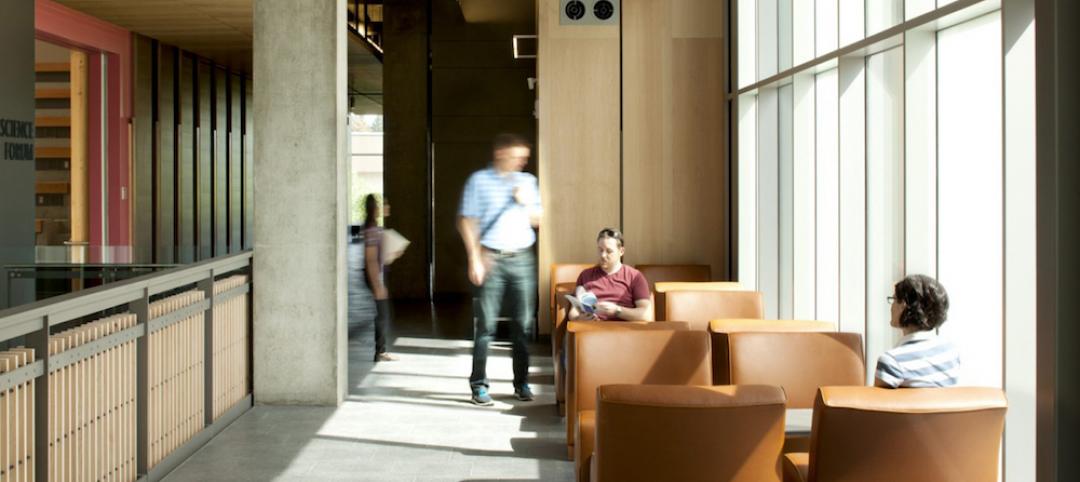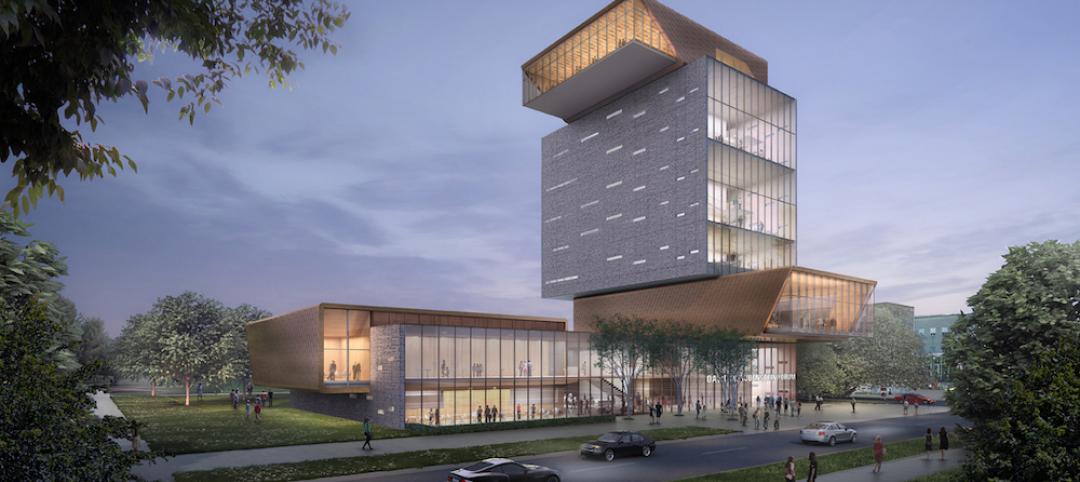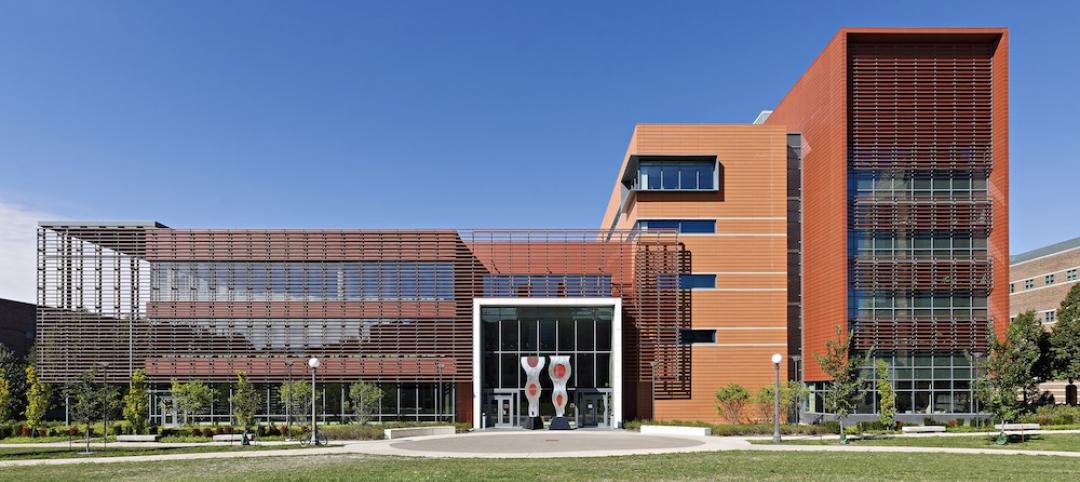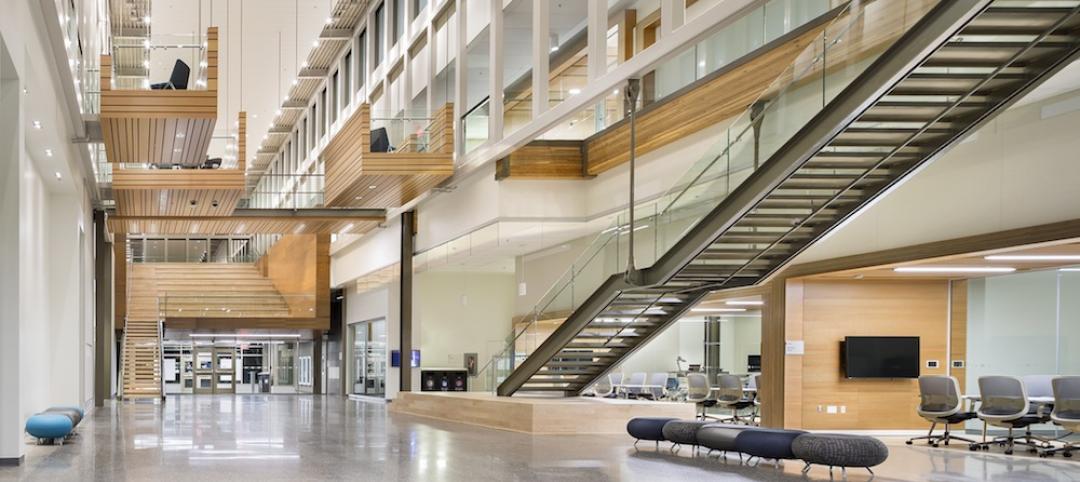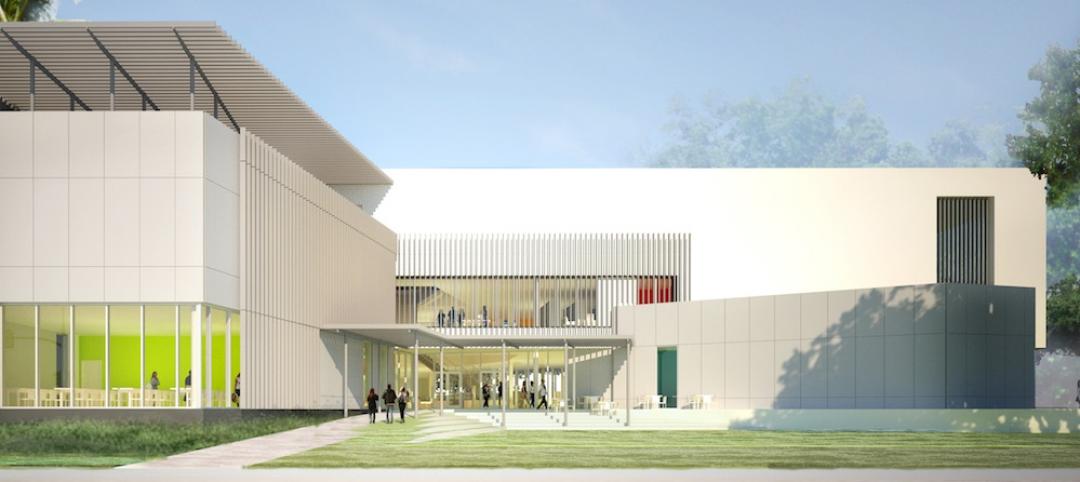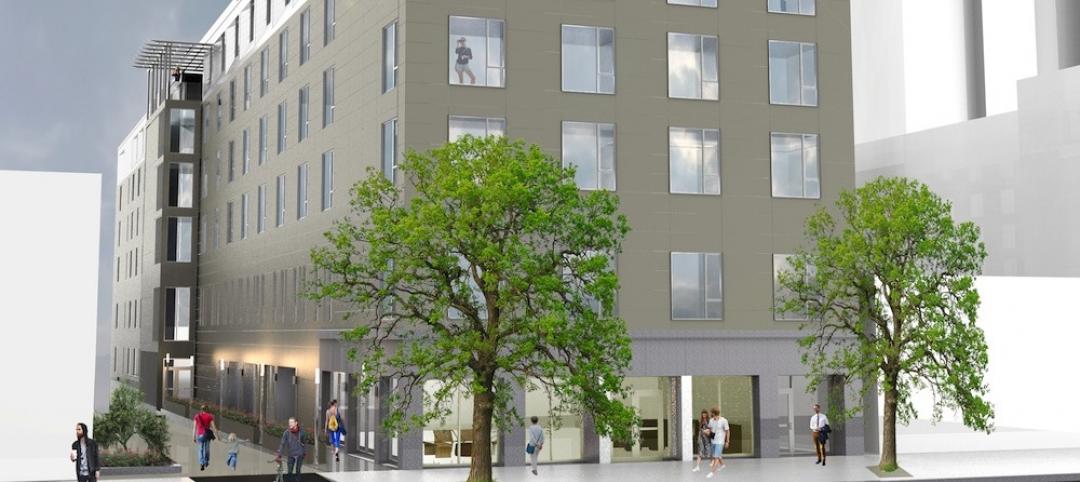The University of Iowa’s new Visual Arts Building is a 126,000-sf facility that will house the functions of the School of Art & Art history, which were previously held in the university’s 1936 Art Building. The new building provides a space for ceramics, sculpture, metals, photography, printmaking, 3D design, intermedia, animation, and graphic design. There is also space for graduate student studies, faculty and staff studios and offices, and gallery space.
The Visual Arts Building uses a punched concrete frame structure composed of cast-in-place concrete to provide thermal mass at the exterior of the building. Meanwhile, “bubble” slabs that incorporate the Cobiax bubble deck system provide radiant cooling and heating.
BNIM, which worked in collaboration with Steven Holl Architects, designed the irregular shape of the building through the use of computer modeling software. This same software was also used to coordinate the installation of the exposed mechanical pipes and ductwork, which proved to be a complex task.
Significant daylighting, natural ventilation at the atrium skylight, thermal mass storage, a thermal active slab heating and cooling system, and highly efficient HVAC systems are key components of the design.
These design components work toward the ultimate goal of the building, which is to provide as much connection and communication between departments as possible. A key aspect of this is the vertical carving out of large open floor plates. Additionally, several vertical cutouts are designed to increase the interaction between the facility’s four levels. The stairs have also been shaped to increase interaction and discussion among the building’s users. Some of the sculptural open stairs stop at large landings with tables and chairs while others open into lounge spaces with built in seating.
The Visual Arts Building officially opened on Oct. 7.
Related Stories
Office Buildings | Jun 10, 2016
Form4 designs curved roofs for project at Stanford Research Park
Fabricated of painted recycled aluminum, the wavy roofs at the Innovation Curve campus will symbolize the R&D process and make four buildings more sustainable.
University Buildings | Jun 9, 2016
Designing for interdisciplinary communication in university buildings
Bringing people together remains the main objective when designing academic projects. SRG Design Principal Kent Duffy encourages interaction and discovery with a variety of approaches.
Building Team Awards | May 31, 2016
Gonzaga's new student center is a bustling social hub
Retail mall features, comfortable furniture, and floor-to-ceiling glass add vibrancy to the new John J. Hemmingson Center.
University Buildings | May 26, 2016
U. of Chicago approves Diller Scofidio + Renfro design for new campus building
With a two-story base and 165-foot tower, the Rubenstein Forum will have room for informal meetings, lectures, and other university events.
University Buildings | Apr 27, 2016
SmithGroupJJR’s Electrical and Computer Engineering Building named 2016 Lab of the Year
Sustainable features like chilled beams and solar screens help the University of Illinois research facility use 50% less energy than minimum building energy efficiency standards.
University Buildings | Apr 25, 2016
New University of Calgary research center features reconfigurable 'spine'
The heart of the Taylor Institute can be anything from a teaching lab to a 400-seat theater.
University Buildings | Apr 13, 2016
Technology defines growth at Ringling College of Arts & Design
Named America's “most wired campus" in 2014, Ringling is adding a library, visual arts center, soundstage, and art museum.
University Buildings | Apr 13, 2016
5 ways universities use new buildings to stay competitive
From incubators to innovation centers, schools desire ‘iconic gateways’ that appeal to students, faculty, entrepreneurs, and the community.
University Buildings | Apr 4, 2016
3 key trends in student housing for Boston’s higher education community
The city wants to add 18,500 student residence beds by the year 2030. CannonDesign's Lynne Deninger identifies three strategies that will help schools maximize value over the next decade or so.
University Buildings | Mar 15, 2016
Behnisch Architekten designs Harvard’s proposed Science and Engineering Complex
The 497,000-sf building will be the home of the John A. Paulson School of Engineering and Applied Sciences.


